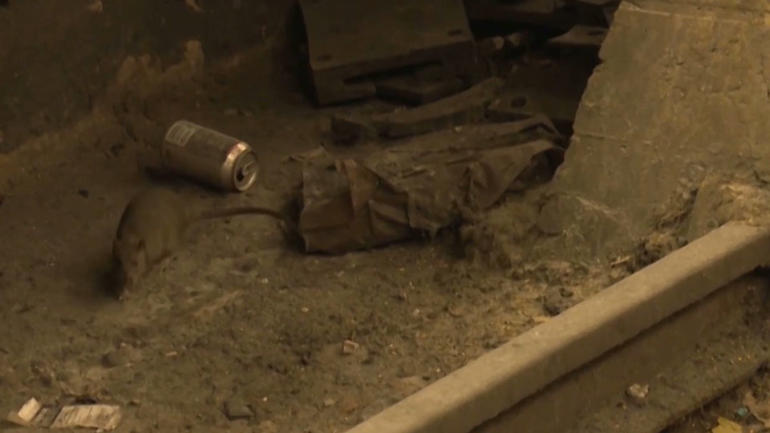New Yorkers have been battling with rats ever since traders first moved there centuries ago.
Now, rat experts are arguing it’s time to declare war on the rodents as their populations rise thanks in part to climate change.
CGTN’s Karina Huber reports.
Bobby Corrigan is a rat consultant. For his PhD, he lived in a rat-infested barn for a week to study their behavior. Today he surveys an alleyway in New York known for its rats.
“New York is one of the rattiest – if not the number one rattiest – city in the United States, in my opinion,” Corrigan said.
In New York, there are genetically-distinct uptown and downtown rats. And the problem is growing.
“It used to be a time when we’d say well it’s rodent season. As the winters got really cold rats and mice would try to move in. That’s not the case anymore. Rodents are active all year round,” said Michael Deutsch an Urban Entomologist at Arrow Exterminating.
In cities like New York rats traditionally stop reproducing in the winter months. But Corrigan said rising temperatures are enabling them to produce an extra litter.
“It adds up to thousands and thousands of rats, and hundreds of thousands of rats. So, on a city-scale we’re talking a lot of rats with that one more litter,” Corrigan said.
What’s the risk with all these rats? The spread of diseases like E. coli, salmonella and others.
“Rats can transmit these diseases – either directly or indirectly – through fleas or lice or mites and we need more surveillance,” Michael Deutsch an Urban Entomologist at Arrow Exterminating said.
A woman in New York died last year after infection with leptospirosis, a bacteria transmitted through rat urine. Deutsch said it’s time for government officials to declare a war on rats. Corrigan agrees, but said it will be a challenging battle to win.
“We’re up against a very tough animal, very smart animal. It’s been rated as among the smartest animals out there so it’s going to take time. So I’m not saying we’re winning the war yet,” said Bobby Corrigan a Urban Rodentologist.
Experts said the solution lies in better waste management as well as programs to exterminate rats, using non-toxic methods so other wildlife isn’t harmed.
 CGTN America
CGTN America

